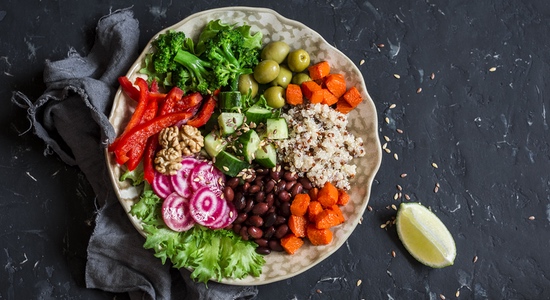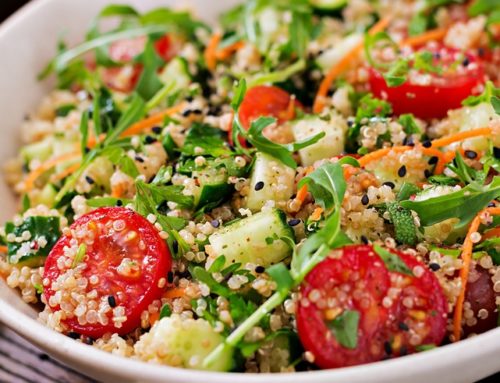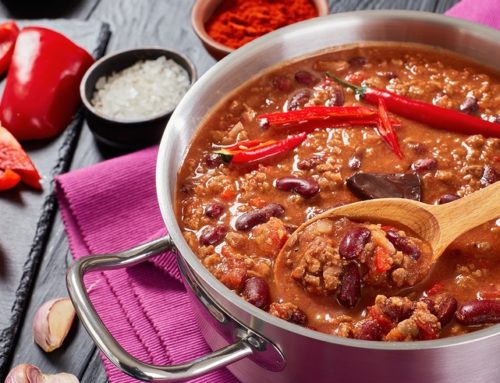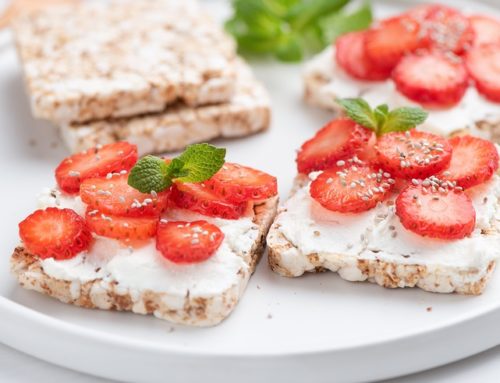Protein. What’s the first thing that comes to mind when you hear that term? Muscles? Maybe a steak, burger, or piece of chicken? What about plants? Plant-based proteins may contain less protein per ounce than animal proteins, but they can still be part of a high protein diet. They are great sources of fiber, antioxidants, vitamins, and minerals and can help lower your cholesterol and risk for heart disease and certain cancers.
There are tons of amazing sources of plant-based protein such as quinoa, beans, lentils, edamame and tempeh, not to mention, nuts and seeds like almonds, walnuts, chia, hemp and flax. Haven’t heard of these protein packed gems? Here’s an introduction.
Quinoa is a complete protein, meaning it contains all of the amino acids your body needs, and is quick, easy to cook with, and can be substituted for rice. Beans are also a super quick, easy, and affordable way to add protein to your meal, as one cup of black beans contains 15 grams of protein. Try combining beans and quinoa with spices and veggies for a delicious protein packed meal.
Lentils are another excellent source of plant protein as they contain 18 grams of protein per cup and are also packed with fiber which helps your digestive system and can also help lower cholesterol and reduce your risk for heart disease! Try adding them to soups, chilis, and salads, or use them as a bed for a curry or stew.
Edamame, another name for soybeans, makes an excellent addition to a stir fry or salad as one cup of these green legumes contains 17 grams of protein. While they usually come in a pod, typically just the beans are eaten and the pod gets discarded. Soybeans are also the foundation of tempeh, which comes in a long rectangular block which can be marinated and cooked the same way as chicken, fish, or steak. The soybeans in tempeh are fermented which means they contain beneficial probiotics that will help boost your gut health, while also providing 19g of protein for a 3 ounce serving, which is about the size of a deck of cards.
Nuts and seeds may be tiny, but they are mighty! Along with containing protein, walnuts, chia, hemp, and flax seeds also contain fiber and are amazing sources of Omega 3 fatty acids which are beneficial to heart health. In fact, 3 tablespoons of hemp seeds contains 10 grams of protein. Try sprinkling any of these seeds or nuts on top of oatmeal, yogurt, salads and smoothies to add an extra protein boost.
Incorporating more plant-based proteins into your diet is an excellent way to help you meet your daily protein needs while trying some new delicious foods at the same time. Search the recipe tab for some more plant based meal ideas.





